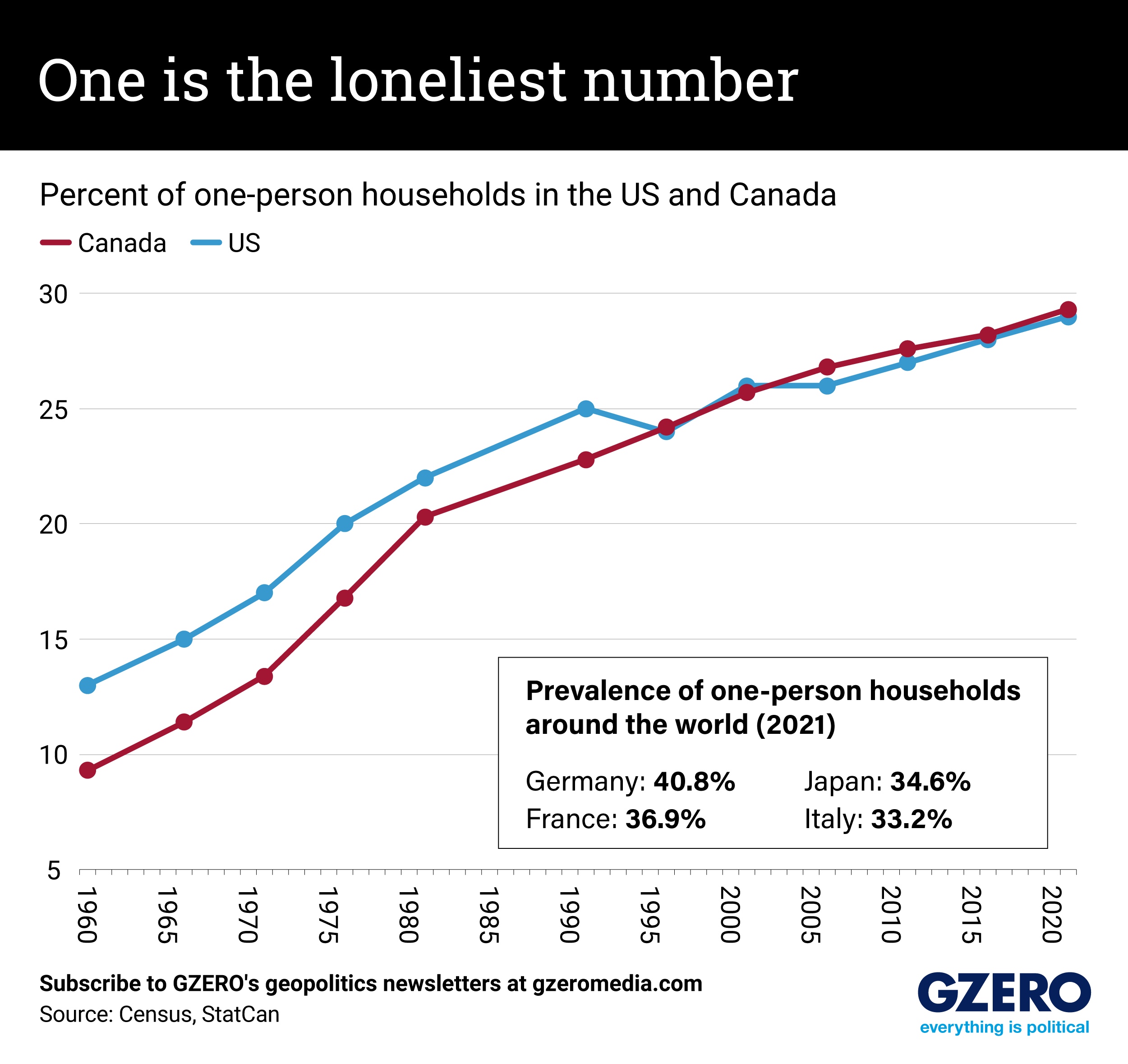October 10, 2024
In Canada and the United States, the trend of living alone has been steadily increasing, driven by declining marriage rates, delayed family formation, increased life expectancy, and greater financial independence.
In 2022 in the US, nearly 30% of households were occupied by only one person, at 28.88%. In 2021, 29% of Canadian households were single-person – the highest share on record. In 1960, those percentages were just 13% and 9.3% respectively for both countries.
Studies have linked living alone to higher rates of depression, and among older adults – who make up the predominant share of single-person households – increased risks of cardiovascular disease, dementia, and premature mortality.
Living alone also contributes to the loneliness epidemic plaguing both countries. US Surgeon General Dr. Vivek Murthy wrote last year that at any moment, one out of every two Americans is experiencing measurable levels of loneliness and called for a national effort to combat the problem. A survey of Canadians found that 40% of the population feels lonely some or all of the time.
Still, if you think it’s bad in the US and Canada, single-living rates are much higher around the world. Take a look.
More For You
- YouTube
For many in Iran, it’s a waiting game for how long Ayatollah Khamenei has left to live.
Most Popular
An army soldier stands guard at a post at the Friendship Gate, following exchanges of fire between Pakistan and Afghanistan forces, at the border crossing between the two countries in Chaman, Pakistan February 27, 2026. Picture taken with a mobile phone.
REUTERS/Abdul Khaliq Achakzai
In a 30-minute call on Thursday, President Donald Trump reportedly told Ukrainian President Volodymyr Zelensky he wants to end the war with Russia as soon as possible — aiming for a deal by summer, but ideally within weeks.
Former British ambassador to the U.S. Peter Mandelson leaves his residence after he was released following his arrest by London police on Monday on suspicion of misconduct in public office, following the release of U.S. Justice Department files linked to the late financier and convicted sex offender Jeffrey Epstein, in London, Britain, February 26, 2026.
REUTERS/Toby Melville
The ghost of Jeffrey Epstein continues to haunt the world.
Think you know what's going on around the world? Here's your chance to prove it.
© 2025 GZERO Media. All Rights Reserved | A Eurasia Group media company.
